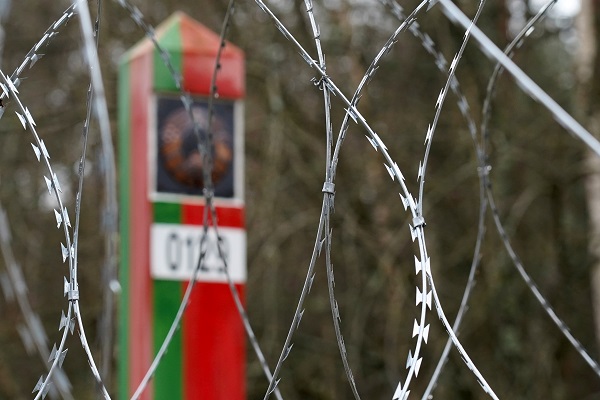 Razor wire is seen in front of a Belarusian border marking pole in Druskininkai, Lithuania, 4 November 2021;
Credit: Reuters / Janis Laizans / Files
Razor wire is seen in front of a Belarusian border marking pole in Druskininkai, Lithuania, 4 November 2021;
Credit: Reuters / Janis Laizans / Files
VILNIUS (Reuters) - Lithuania's parliament on Tuesday extended a state of emergency at the country's border with Belarus and at camps hosting migrants who arrived from there until 15 January 2022.
EU member states accuse Belarus of encouraging illegal migrants from the Middle East, Afghanistan and Africa to cross the border into the EU in retaliation for sanctions imposed on Minsk over human rights abuses.
The state of emergency, in place since 9 November 2021 when hundreds of migrants set up camps along Belarus' border with Poland, allows border guards to use "mental coercion" and "proportional physical violence" to prevent migrants from entering Lithuania.
Prime Minister Ingrida Simonyte told parliament the numbers of migrants trying to cross the border has now decreased.
The Lithuanian Interior Ministry said last week that about 10,000 illegal migrants were in Belarus. Until they are returned to their countries of origin, there was a risk that they could be sent towards Lithuania, it said.
Lithuania's declaration allows border guard to ban all travel to within 10 km of the Belarus border. Mobile phones could be taken away from migrants and public gatherings near the border and in the camps could be forbidden.
The government on Tuesday dropped its proposal to a declare state of emergency at the Lithuanian border with Poland, to stop smugglers ferrying the migrants to Germany via Poland, after push back from lawmakers who called the measure excessive.
(Reporting by Andrius Sytas in Vilnius; Editing by Angus MacSwan)








